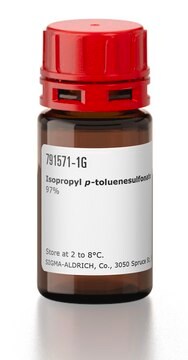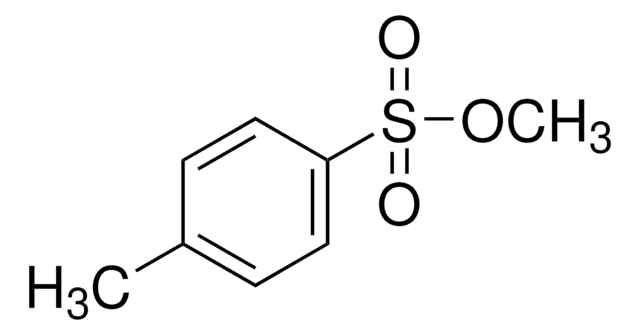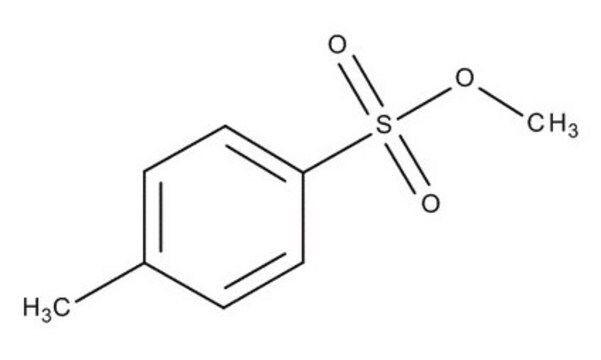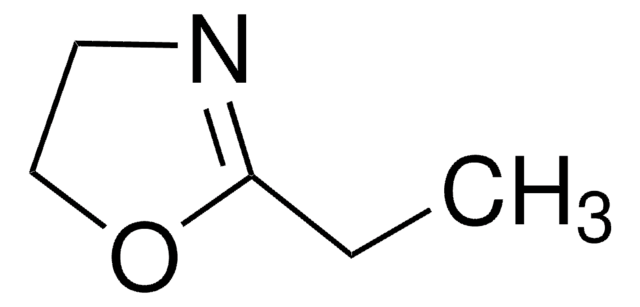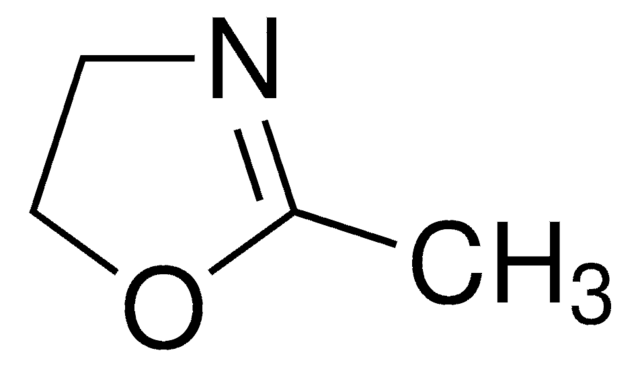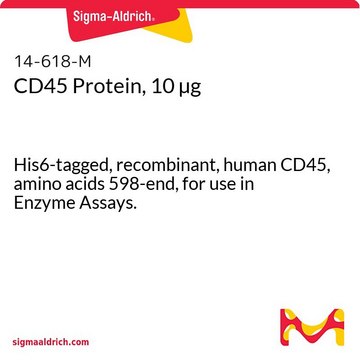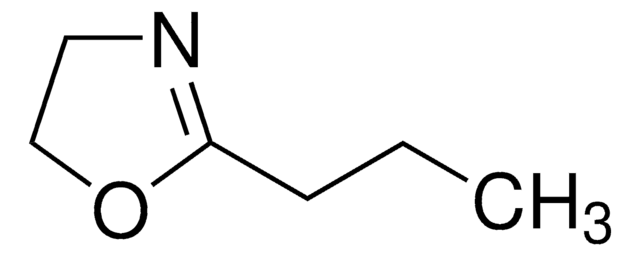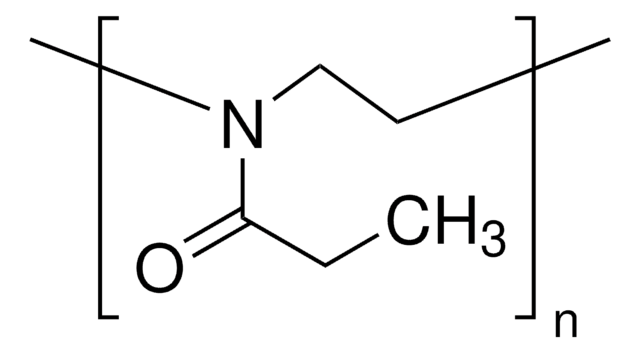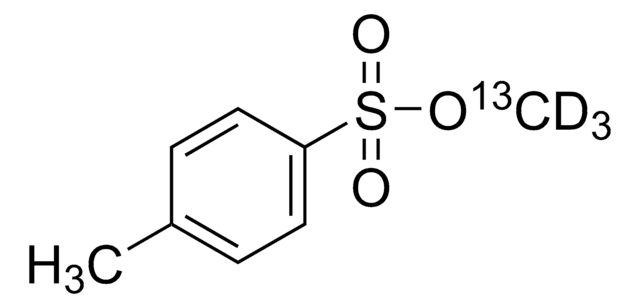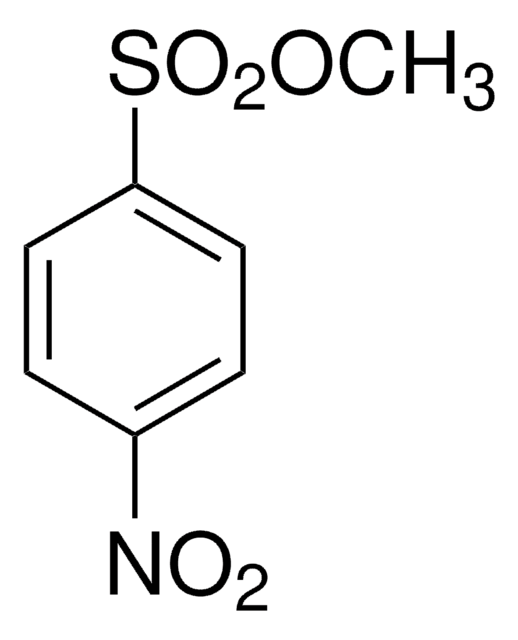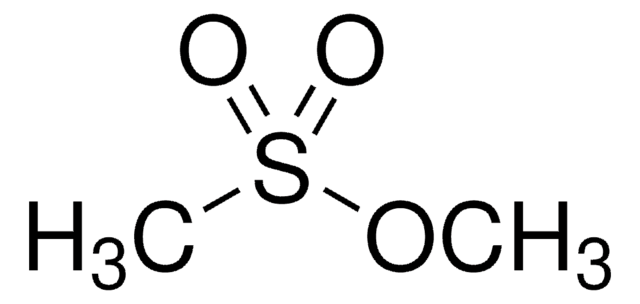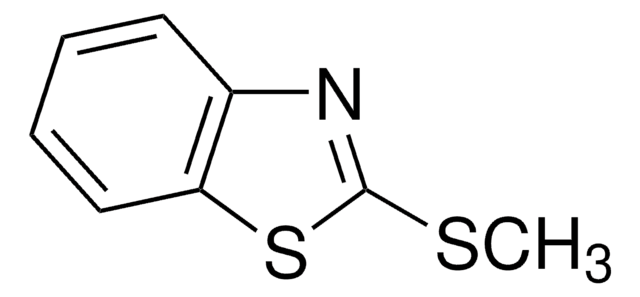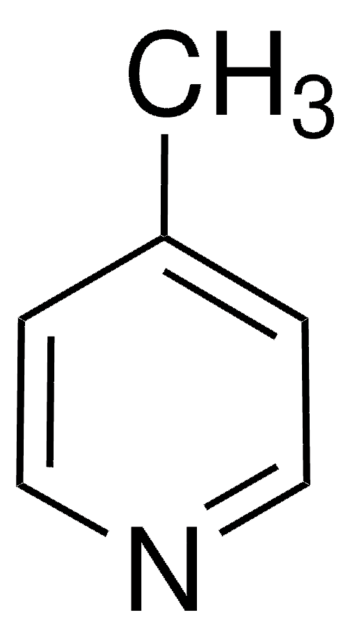158992
Methyl p-toluenesulfonate
98%
Sinónimos:
Methyl p-methylbenzenesulfonate, Methyl toluene-4-sulfonate, Methyl tosylate, Methylp-tosylate
About This Item
Productos recomendados
vapor density
6.45 (vs air)
Quality Level
vapor pressure
1 mmHg ( 20 °C)
assay
98%
form
solid
autoignition temp.
896 °F
refractive index
n20/D 1.5172 (lit.)
bp
144-145 °C/5 mmHg (lit.)
mp
25-28 °C (lit.)
density
1.234 g/mL at 25 °C (lit.)
functional group
tosylate
storage temp.
2-8°C
SMILES string
COS(=O)(=O)c1ccc(C)cc1
InChI
1S/C8H10O3S/c1-7-3-5-8(6-4-7)12(9,10)11-2/h3-6H,1-2H3
InChI key
VUQUOGPMUUJORT-UHFFFAOYSA-N
¿Está buscando productos similares? Visita Guía de comparación de productos
General description
signalword
Danger
hcodes
Hazard Classifications
Acute Tox. 4 Oral - Eye Dam. 1 - Skin Corr. 1B - Skin Sens. 1B
Storage Class
8A - Combustible corrosive hazardous materials
wgk_germany
WGK 2
flash_point_f
235.4 °F - closed cup
flash_point_c
113 °C - closed cup
ppe
Eyeshields, Faceshields, Gloves, type P3 (EN 143) respirator cartridges
Elija entre una de las versiones más recientes:
¿Ya tiene este producto?
Encuentre la documentación para los productos que ha comprado recientemente en la Biblioteca de documentos.
Los clientes también vieron
Nuestro equipo de científicos tiene experiencia en todas las áreas de investigación: Ciencias de la vida, Ciencia de los materiales, Síntesis química, Cromatografía, Analítica y muchas otras.
Póngase en contacto con el Servicio técnico
